What are the benefits of event marketing? The complete guide to boost sales and build your brand
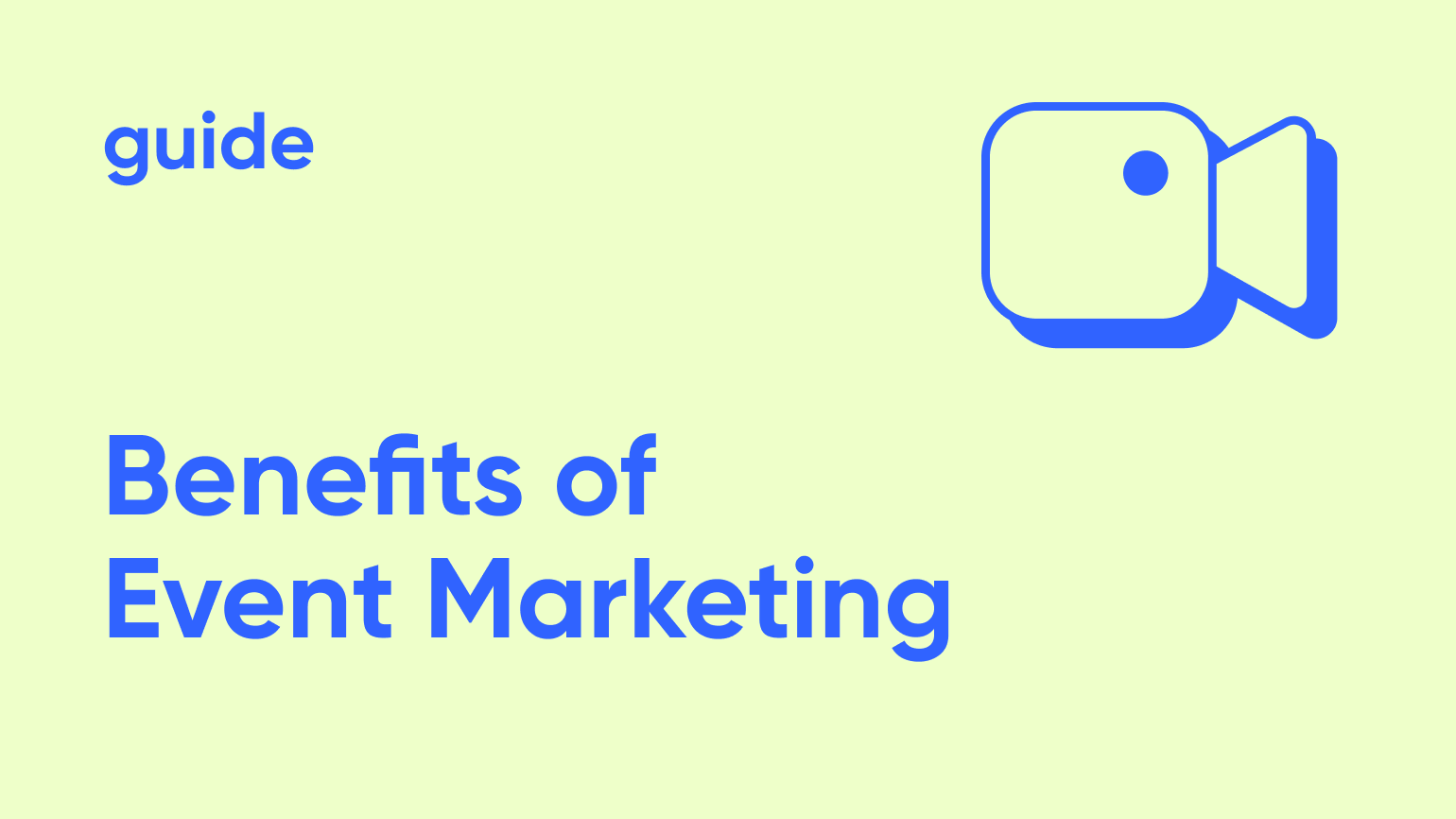
As an event marketer, event marketing revolutionizes how your brand connects with its target audience, generates leads, and builds lasting relationships. Understanding the core benefits of event marketing is essential for any organization looking to enhance their marketing mix and achieve meaningful customer engagement. Before diving into these benefits, it's worth understanding how comprehensive event marketing strategies can be integrated into your broader marketing approach.
As MarTech recently reported, forward-thinking organizations are adopting an "event-first approach" to marketing, recognizing that events can spark a year's worth of content people want, driving brand awareness, community engagement, and pipeline development throughout the entire year
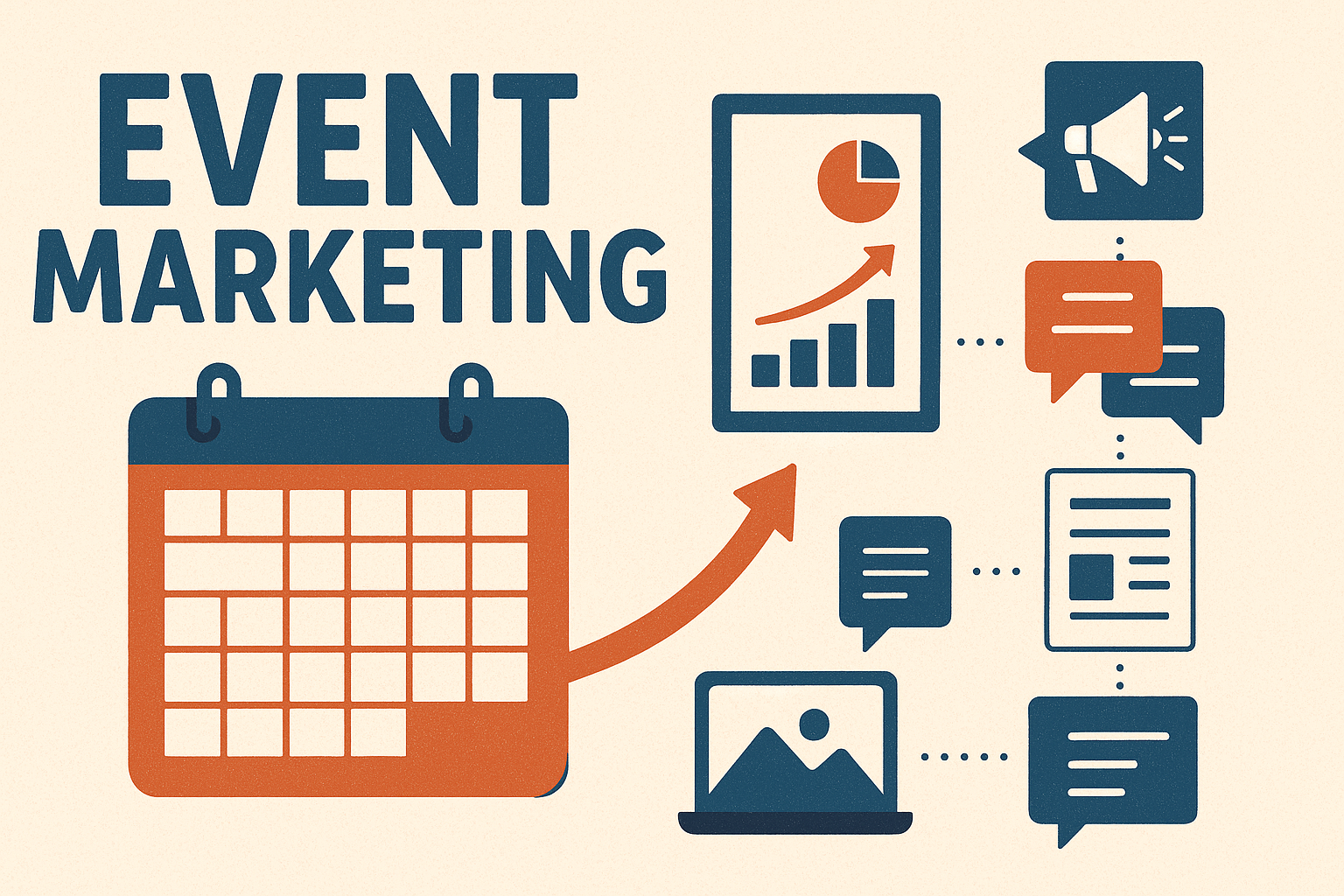
The core benefits of event marketing for business growth
Event marketing offers a powerful combination of benefits that traditional marketing channels struggle to match. Successful event marketing strategies deliver across multiple fronts simultaneously, creating a compound effect that's greater than the sum of its parts. Let's explore how events can transform your marketing efforts and drive substantial business growth.
How does event marketing increase brand awareness?
Events create memorable "experiential memory" tied to emotions and personal experiences. This is particularly true for webinars and virtual events, which can create lasting impressions even in digital formats. When someone thinks about your brand, they remember how you made them feel and the positive value you provided. After attending a well-executed webinar, attendees are far more likely to recommend the hosting company compared to those who only engaged through traditional media or email marketing campaigns.
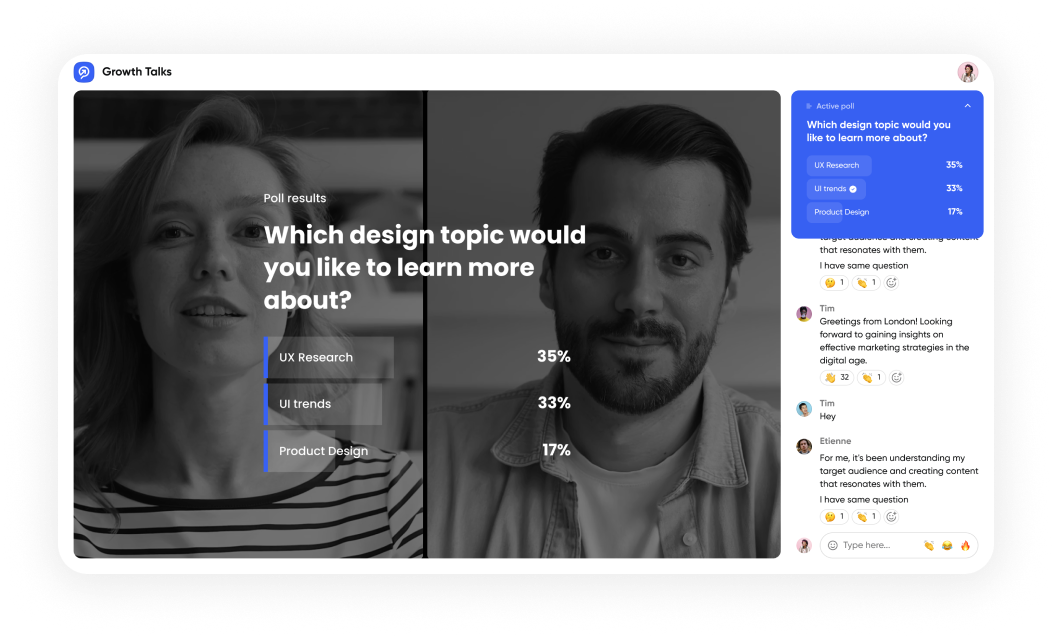
Events accomplish multiple brand-building objectives simultaneously. Harvard Business Review's comprehensive study of more than 700 business executives found that 93% of organizations place a priority on hosting events, including 57% who give it a high priority, demonstrating the widespread recognition of events' brand-building potential. During a single session, you're demonstrating expertise, showcasing personality, building trust, and creating content for future use. The beauty lies in the authenticity – attendees see your genuine expertise and authority, elements that enhance brand affinity you can't buy through conventional advertising or online ads.
Product exposure through events provides massive content multiplication opportunities. Smart marketers leverage video marketing strategies to amplify this content across multiple channels, extending the reach far beyond the original event audience. A single webinar generates recordings, blog posts, social media content, and quotes that fuel your marketing for months. This content feels authentic because it comes from real interactions with your target market, making it more compelling than manufactured marketing materials.
Event marketing strategies excel at building brand loyalty through direct engagement with potential customers. The visibility gained extends beyond immediate attendees through word of mouth promotion. User-generated content from attendees provides authentic endorsements that carry more credibility than corporate messaging. When industry professionals share insights from your event, they're providing third-party validation to their entire professional network.
Events position you as a thought leader rather than just another vendor. Speaking at industry conferences or hosting successful workshops demonstrates market recognition that marketing content alone cannot achieve. This enhanced visibility leads to media mentions, speaking opportunities, and industry recognition that establish your authority in the marketplace.
The impact of events on brand awareness is particularly powerful because they engage multiple senses and create unique experiences. Unlike passive marketing channels, events allow your audience to interact directly with your products or services, creating lasting impressions that traditional advertising cannot replicate.
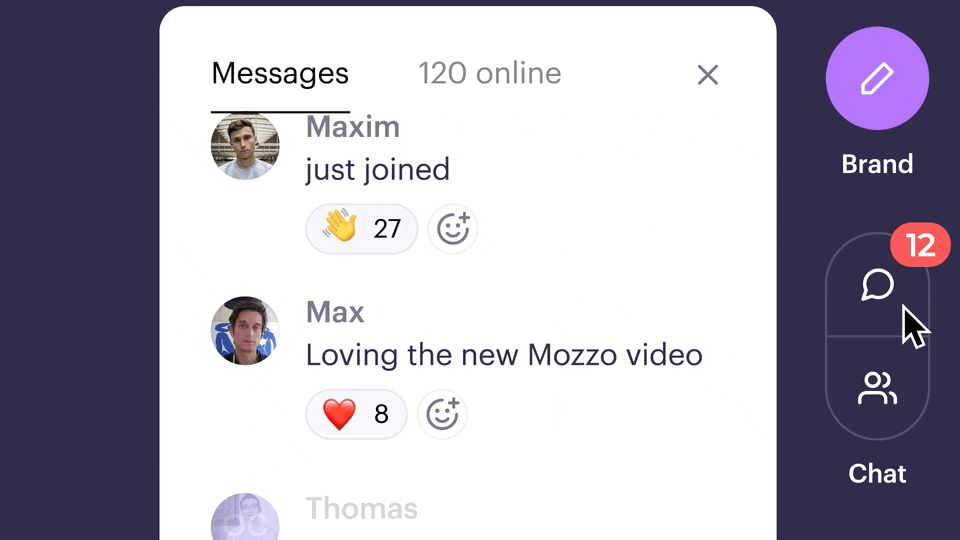
How can event marketing generate leads?
Event marketing gets you face-to-face time with qualified prospects who are already interested enough to show up. This principle is especially effective in webinar lead generation, where attendee registration itself indicates genuine interest. The best leads aren't people who downloaded your white paper through email marketing; they're people who've experienced your expertise firsthand and invested their time in learning from you. This direct engagement creates a foundation for meaningful connections that can easily move prospects into your sales pipeline.
When someone attends your event, they're making a micro-commitment to your brand that makes them more likely to take the next step in your sales process. This psychological investment creates trust that traditional lead generation tactics struggle to achieve. Event attendees demonstrate genuine interest rather than casual browsing, making them high-quality prospects for your sales team.
Quality over quantity becomes your competitive advantage as an event marketer. This aligns perfectly with modern demand generation strategies that prioritize qualified prospects over volume metrics. While competitors chase vanity metrics through marketing channels like online ads, you're building relationships with potential clients who are pre-qualified, engaged, and primed for meaningful sales conversations that can automatically move them into your pipeline.
Networking opportunities create compound lead generation effects. Relationships you build create opportunities that multiply over time. Your attendees become your extended sales team, referring colleagues and vouching for your expertise through powerful word of mouth promotion. Customers acquired through referrals have a 37% higher retention rate.
Events accelerate your sales pipeline by showcasing your products and services in action. This acceleration is a key component of effective inbound marketing, where prospects move through the buyer's journey more efficiently. Prospects who attend your events move through sales cycles faster because they've already experienced your expertise and trust your capabilities. What might take months through email marketing sequences can happen in a single session when prospects can see your knowledge in action.
The lead quality from events typically exceeds other marketing channels because attendees have self-selected as interested prospects. They've invested time to learn from you, which indicates genuine interest rather than passive engagement. This pre-qualification means higher conversion rates, shorter sales cycles, and improved cost effectiveness compared to traditional lead generation methods.
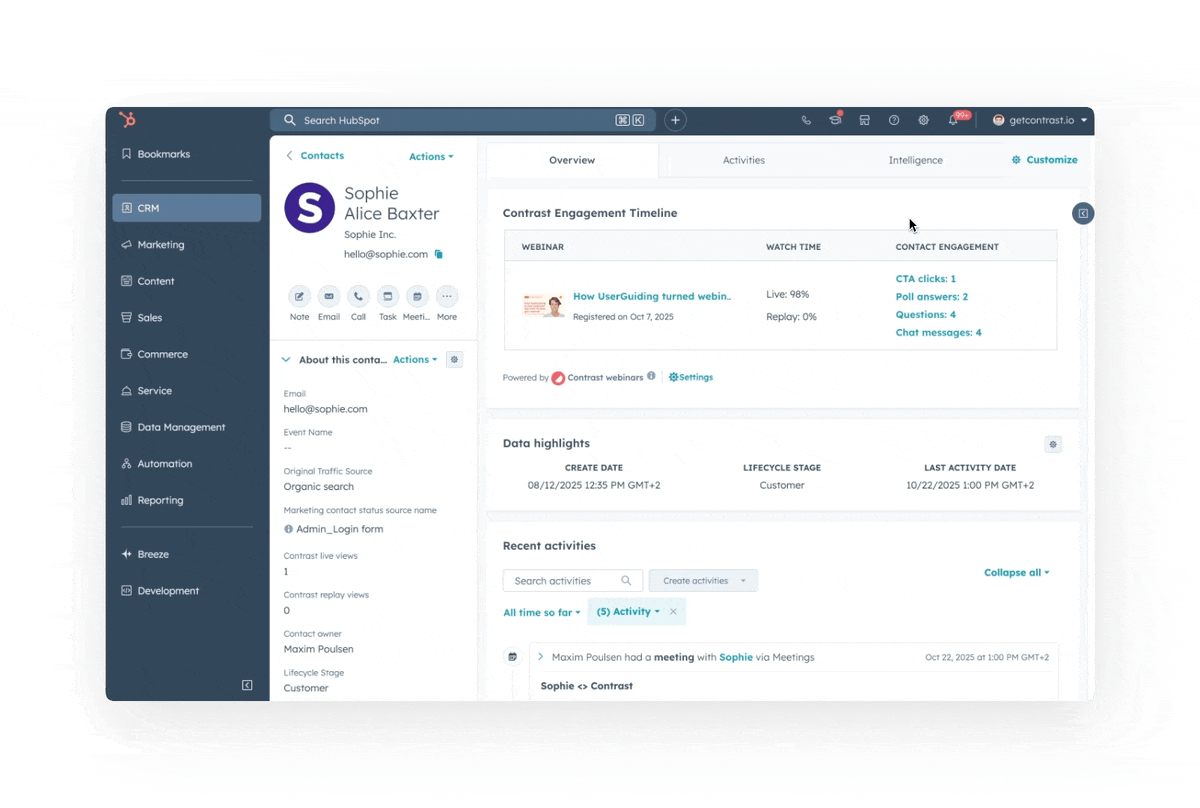
Event marketing also enables realtime feedback and data collection that helps identify the most promising prospects. You can observe engagement levels, note which topics generate the most interest, and identify potential customers who ask sophisticated questions or stay engaged throughout the entire session. This behavioral data helps prioritize follow-up efforts and personalize subsequent communications. Business research confirms these benefits, showing that events are fertile grounds for generating high-quality leads because attendees are usually pre-qualified, meaning they have a genuine interest in the industry or the type of products and services being showcased, leading to higher conversion rates compared to other marketing channels.
Build relationships that drive long-term success
Relationships are the ultimate business moat – they can't be copied or replicated by competitors with bigger budgets. Events excel at relationship building because they create shared experiences, which are the foundation of human connection and trust. Successful event marketing focuses on building meaningful connections rather than short-term sales transactions.
Events aren't about pitching; they're about connecting with your target audience. The goal is to become the company people think of when they're ready to solve the problem you address. Trust accelerates exponentially through personal interaction – what might take months through email marketing campaigns can happen in a single conversation when prospects can experience your expertise firsthand.
Events transform passive audiences into active participants who invest emotionally in your success. A well-planned webinar strategy can systematically build these emotional connections at scale. You're facilitating discussions where attendees contribute ideas, ask questions, and engage with your content in real-time. This participatory element creates psychological investment that traditional marketing simply can't match, leading to stronger customer engagement and long-term brand loyalty.

Create Interactive Webinars on Contrast
Start for free up to 30 registrants. No credit card needed.
Start for freeThe relationships built during events often become sources of referrals, partnerships, and collaboration opportunities that generate value for years. Industry professionals who connect at your events frequently become advocates who recommend your services and provide testimonials that carry more weight than any advertising campaign. These authentic endorsements create a multiplier effect that extends your reach far beyond the original attendee list.
Events create peer-to-peer learning opportunities that position your brand as a facilitator of valuable connections. When attendees network with each other during your event, they associate your brand with positive professional experiences and valuable relationship building. This community-building aspect enhances your reputation and encourages repeat attendance at future events.
The personal nature of event interactions builds emotional connections that withstand competitive pressures. When potential clients have met your team, experienced your company culture, and formed personal relationships, they're less likely to switch to competitors based solely on price or features. These emotional bonds create customer retention advantages that compound over time.
Regular event participation also allows you to stay connected with existing customers, strengthening relationships and identifying expansion opportunities. Customer engagement improves significantly when relationships are maintained through ongoing event participation rather than relying solely on account management activities or automated email marketing sequences.
What types of event marketing boost marketing efforts most effectively?
Understanding the different types of event marketing is crucial for developing successful event marketing strategies. Each format serves different strategic purposes and appeals to different audience preferences. The key is matching your format to your goals and target market while considering factors like budget, logistics, and desired outcomes.
Virtual events and webinars: scaling your reach
Virtual events are the great equalizers of modern marketing, offering cost effective solutions that eliminate geographic boundaries and travel budget constraints. Understanding what a webinar is and how it functions is essential for leveraging this accessibility. You can reach audiences that would never attend in-person events, making them particularly powerful for organizations looking to expand their target market reach. While in-person events might reach hundreds at significant expense, virtual events can reach thousands for a fraction of the cost.
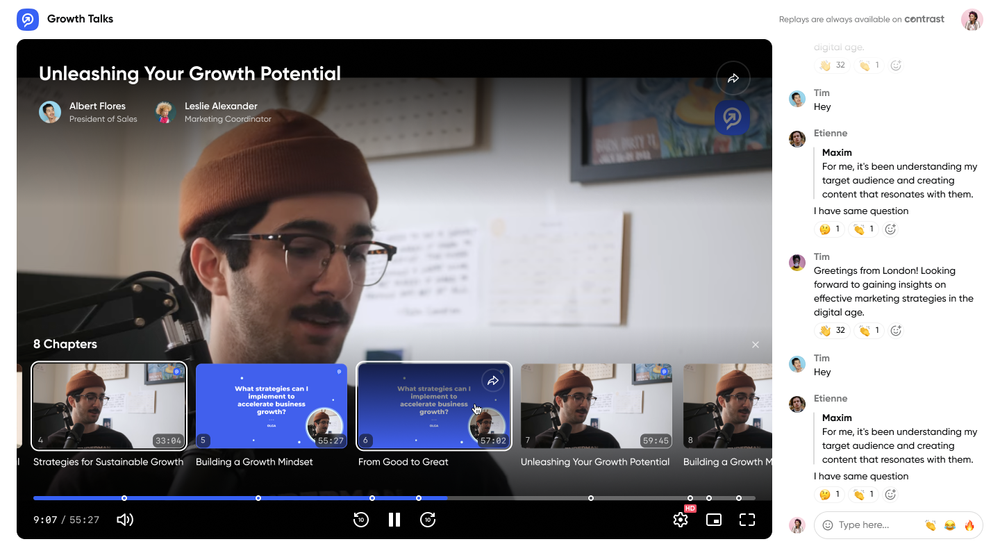
Virtual events excel at data collection and automation, allowing you to track engagement levels, monitor attendee behavior, and gather valuable insights with precision impossible at physical events. This data helps you improve future events and automate personalization that makes each subsequent session more effective. The convenience factor cannot be overstated – busy professionals can attend during lunch breaks or from locations that would make in-person attendance impossible.
Virtual platforms offer unique interactive features that can enhance the attendee experience. Choosing the best webinar software with these features is crucial for maximizing engagement. Live polls, chat functions, and downloadable resources create engaging experiences that keep participants active throughout the session. Many event management software solutions now include built-in networking tools that facilitate meaningful connections between attendees.
Virtual events also provide perfect testing grounds for content and messaging before investing in larger in-person events. Current webinar statistics show impressive ROI potential that makes this testing approach even more valuable. You can experiment with different presentation styles, topics, and formats while gathering real-time feedback that informs your broader event marketing strategy. The lower cost and reduced logistics make virtual events ideal for testing new ideas and measuring audience response.
Trade shows and exhibitions: showcase products and services
Trade shows and exhibitions are where your products and services come alive through immersive, experiential marketing opportunities. These events allow you to create branded booths and interactive displays that showcase your offerings in ways that online marketing channels simply cannot match. Trade shows provide unparalleled product exposure and direct access to your target audience in a professional setting. Success often depends on leveraging the right event marketing tools to track engagement and follow up effectively.
The exhibition environment creates powerful networking opportunities with industry peers, potential clients, and strategic partners. Trade shows attract serious buyers who are actively researching solutions, making them high-quality prospects for your sales team. The ability to demonstrate products live and provide hands-on experiences significantly improves conversion rates compared to virtual demonstrations.
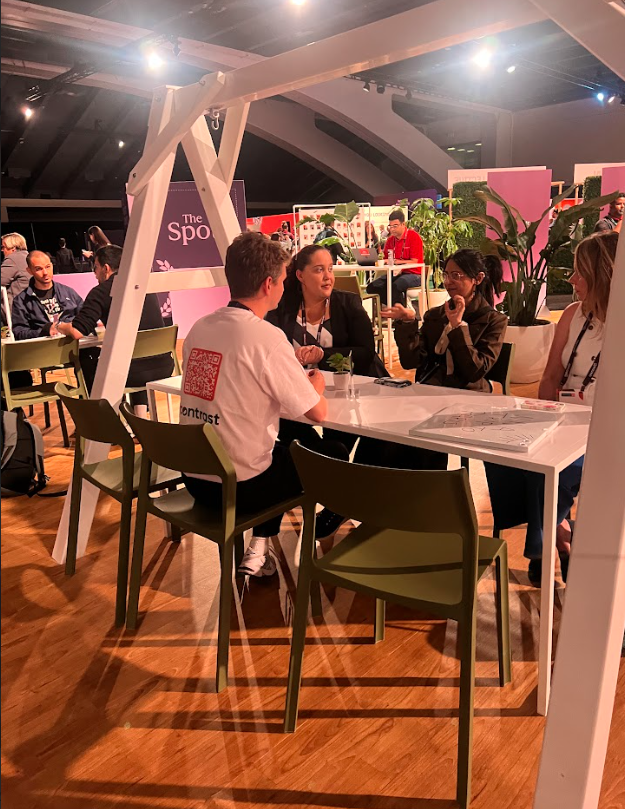
Trade shows also offer excellent opportunities for product launches, allowing you to generate excitement and media attention around new offerings. The concentrated presence of industry professionals and media makes exhibitions ideal venues for announcing significant developments and establishing thought leadership in your sector.
Exhibition participation requires careful planning to maximize ROI. Successful exhibitors focus on booth design that attracts attention, interactive demonstrations that engage visitors, and follow-up processes that convert leads into customers. The face-to-face nature of trade shows enables immediate relationship building and trust development that accelerates sales cycles.
Conferences and workshops: establish authority and educate
Conferences and workshops position your organization as an industry authority while providing valuable education to your target audience. These events allow you to share knowledge, demonstrate expertise, and build credibility in ways that establish long-term competitive advantages. Speaking at conferences or hosting educational workshops significantly enhances your reputation and market position.
Workshops offer intimate settings for deep engagement with potential clients and industry peers. The educational format allows you to demonstrate your expertise while providing genuine value to attendees. This approach builds trust and positions your organization as a helpful resource rather than just another vendor trying to make a sale.
Conferences also provide excellent networking opportunities with industry leaders, potential partners, and key decision-makers. The professional setting and shared learning experience create natural conversation starters and relationship-building opportunities that can lead to significant business development.
Educational events attract high-quality attendees who are genuinely interested in learning and improving their skills or knowledge. This audience composition typically results in better lead quality and higher conversion rates compared to purely promotional events.
Hybrid events: combining reach and relationships
Hybrid events combine the intimacy of in-person interactions with the scalability of virtual experiences. You might have 100 people attend in person at your venue while 1,000 join virtually through your platform, creating network effects that neither format could achieve alone. This approach maximizes your investment by expanding audience reach while maintaining high-value relationship building opportunities.
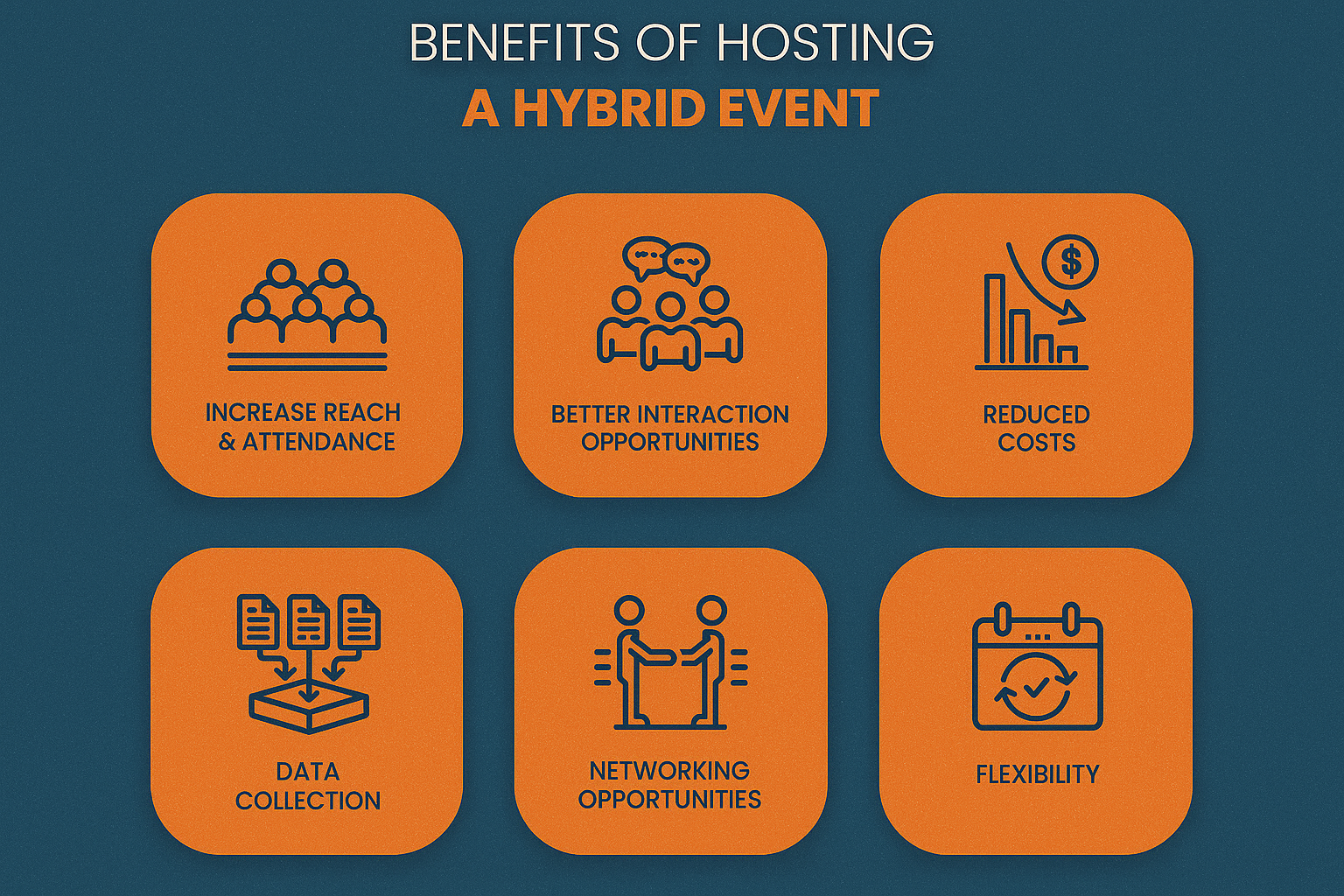
Hybrid events also future-proof your event marketing strategy against unexpected disruptions. Whether faced with travel restrictions, budget constraints, or evolving attendee preferences, hybrid events provide flexibility that pure formats cannot match. Virtual attendees often become curious about future in-person events, while in-person attendees can share virtual access with colleagues who couldn't travel.
The technology platform you choose for hybrid events significantly impacts success. Selecting the best virtual event platforms ensures seamless integration between physical and digital experiences. Look for solutions that seamlessly integrate in-person and virtual experiences, provide robust networking tools, and offer comprehensive data analytics. Proper execution requires careful attention to both audiences to ensure neither feels like an afterthought.
Hybrid events require more complex event management but offer unique advantages for community building. Local attendees benefit from face-to-face networking while remote participants can access content and connections they might otherwise miss. This dual approach often results in larger, more diverse audiences and increased overall engagement.
Why is networking important in event marketing?
Networking opportunities at events function like compound interest for your business relationships – connections you make today create opportunities that multiply over months and years. Professional networks operate on reciprocity and trust, not sales pitches, making events ideal environments for building authentic business relationships.
The most successful event marketers approach networking with a "give first" mentality, focusing on how they can help others rather than what they can gain. This approach builds goodwill and establishes you as a valuable connection that others want to maintain and recommend to their peers.
Strategic networking starts before the event begins through careful planning and research. Reviewing attendee lists, identifying specific individuals you want to meet, and setting clear networking goals transforms random encounters into purposeful conversations. Quality trumps quantity – a handful of meaningful connections generate more business value than hundreds of superficial interactions.
Event platforms and apps often include networking features that facilitate connections between attendees. Maximizing virtual event engagement through these networking tools can replicate in-person relationship building. These tools can help identify potential contacts, schedule meetings, and maintain relationships after the event ends. Technology enhances but doesn't replace the fundamental human elements of relationship building.
The most valuable networking connections extend far beyond the initial encounter, becoming sources of referrals, collaboration opportunities, and industry insights that continue generating value for years. Successful networkers send personalized follow-up messages within 48 hours that reference specific conversation points and offer concrete next steps, transforming casual meetings into developing professional relationships.
Events also provide opportunities to strengthen existing relationships with current customers, partners, and industry contacts. Regular face-to-face interaction helps maintain strong connections and often reveals new collaboration opportunities or expansion possibilities that might not emerge through routine business communications.
What role does social media play in event marketing?
Social media transforms events from isolated activities into comprehensive digital campaigns that extend reach and create content that generates value long after the original event concludes. Social amplification during events creates a multiplier effect – each attendee who shares content potentially exposes your brand to their entire professional network, often exceeding the impact of the original event attendance.
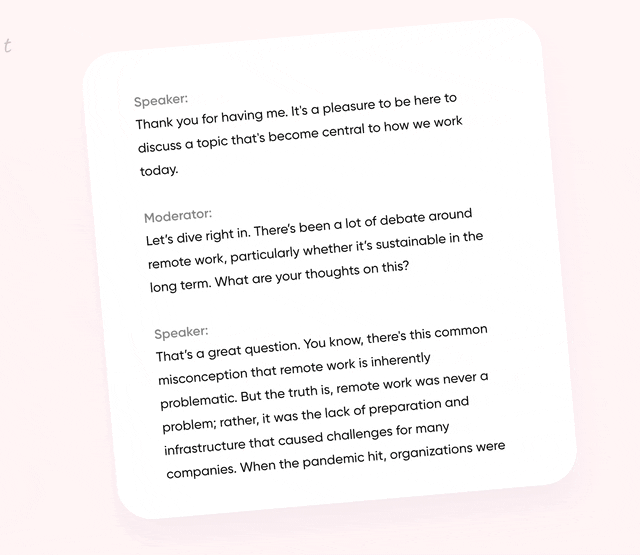
Strategic hashtag campaigns create discoverable conversations that extend beyond your immediate audience, while user-generated content from attendees provides authentic endorsements that carry more credibility than corporate messaging. This social amplification should be part of a broader content strategy that maximizes every piece of event-generated content. When industry professionals share insights from your event, they're providing third-party validation of your expertise and authority.
Pre-event social media promotion should focus on value preview rather than basic logistics. Share speaker insights, preview key topics, and highlight specific takeaways attendees can expect. Content teasers build anticipation and excitement while demonstrating your expertise through video clips, behind-the-scenes content, and speaker spotlights.
Live social media coverage during events encourages real-time engagement and creates shareable moments. Live streaming key sessions, sharing quotes and insights, and highlighting networking activities help remote audiences feel connected to the event experience. This approach often drives registration for future events from people who experienced FOMO (fear of missing out).
Post-event content extension keeps conversations alive with key insight summaries, speaker highlights, and follow-up resources that maintain engagement momentum. Many successful event marketers report that post-event social media content generates more engagement than the original event promotion, creating ongoing value from their event investment.
Social media also provides valuable data and feedback about event performance, audience preferences, and content resonance. Monitoring engagement metrics, sentiment analysis, and share patterns helps improve future events and refine your overall event marketing strategy.
Conclusion
Event marketing bridges digital efficiency and human connection that modern businesses desperately need. Companies that integrate strategic event marketing consistently outperform those relying solely on digital marketing channels. The compound benefits of relationship building, thought leadership positioning, lead generation, and brand awareness create sustainable competitive advantages that traditional marketing tools alone cannot achieve.
Whether you choose virtual events, trade shows, conferences, or hybrid formats, the key is matching your approach to your goals and target audience. Start with clear objectives, plan meticulously, and focus on providing genuine value to your attendees. Success in event marketing requires patience, persistence, and a commitment to building authentic relationships rather than pursuing short-term transactional gains.
Start planning your first event today. Your future customers and partners are waiting to meet you, and the relationships you build through strategic event marketing will become the foundation for long-term business success.
